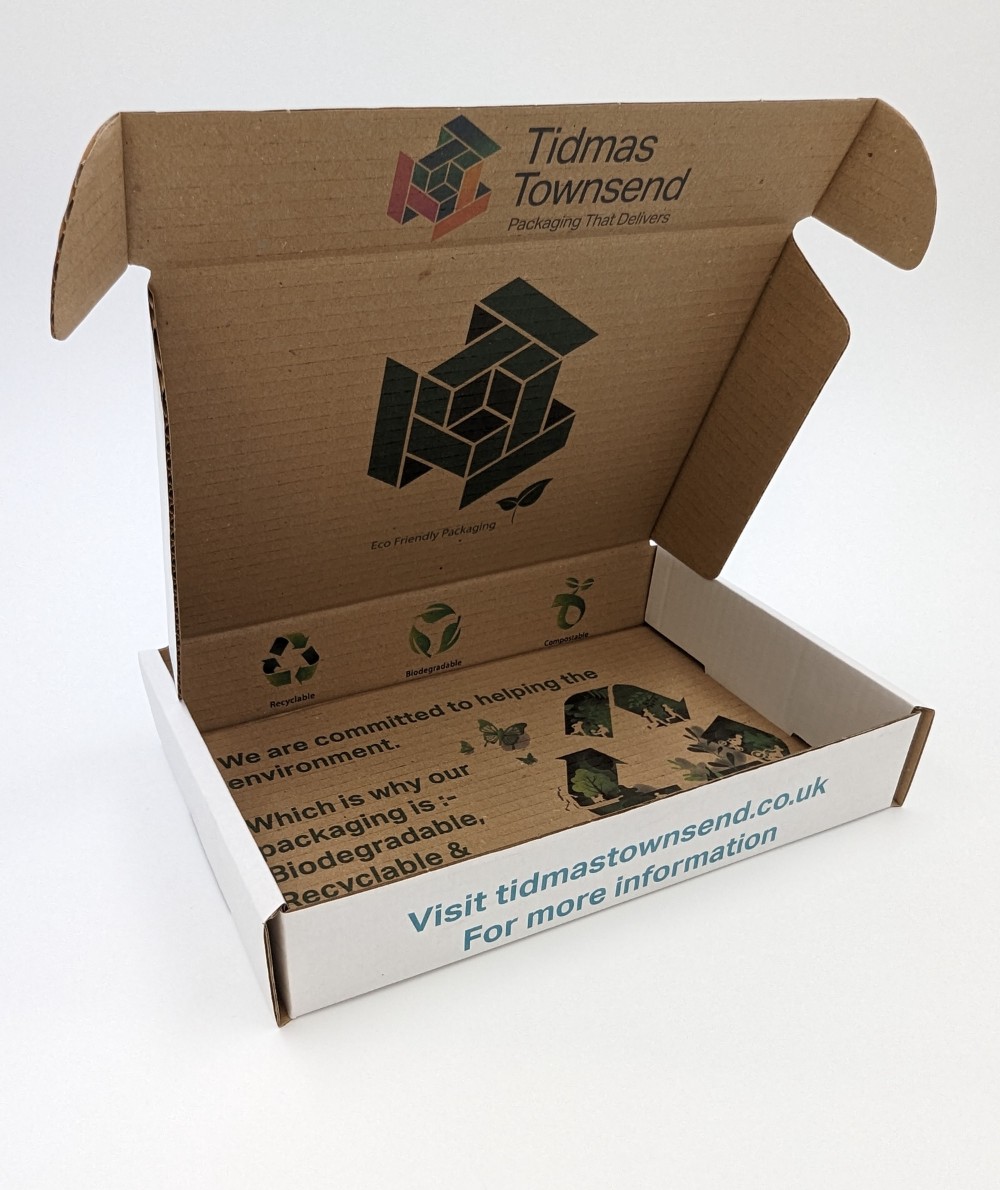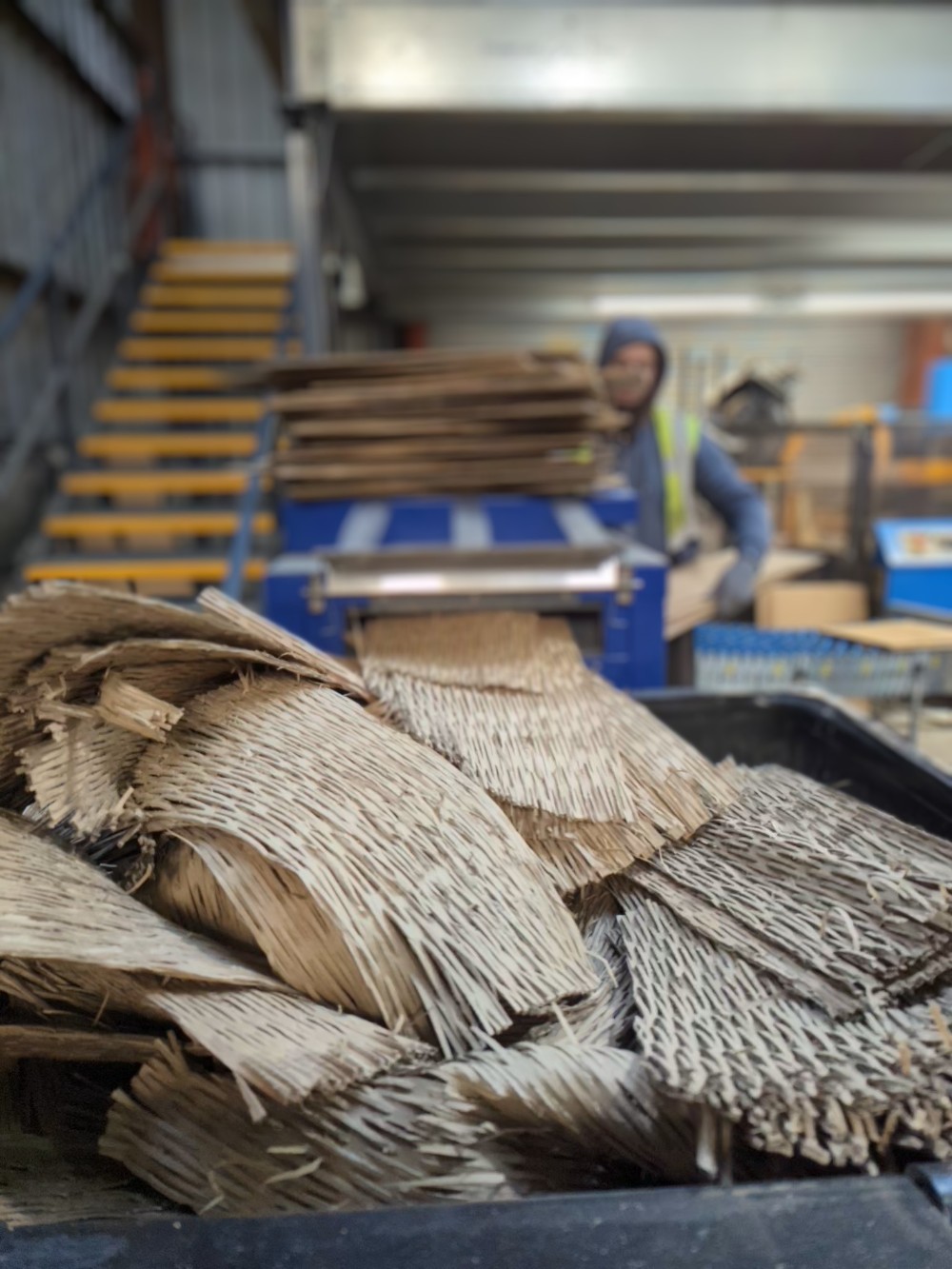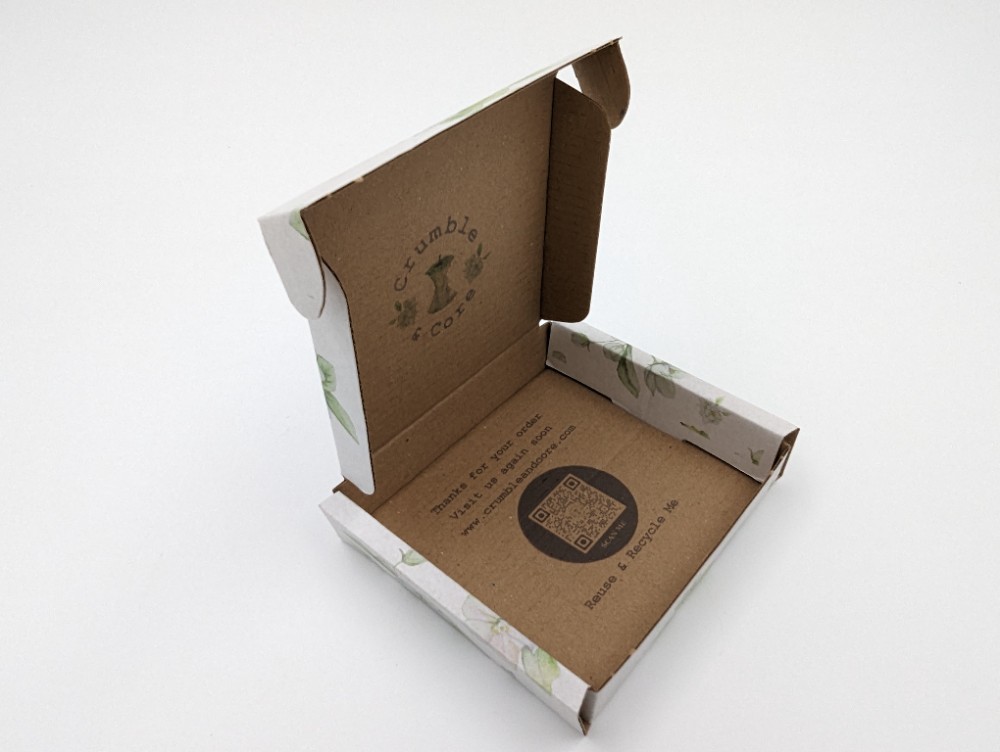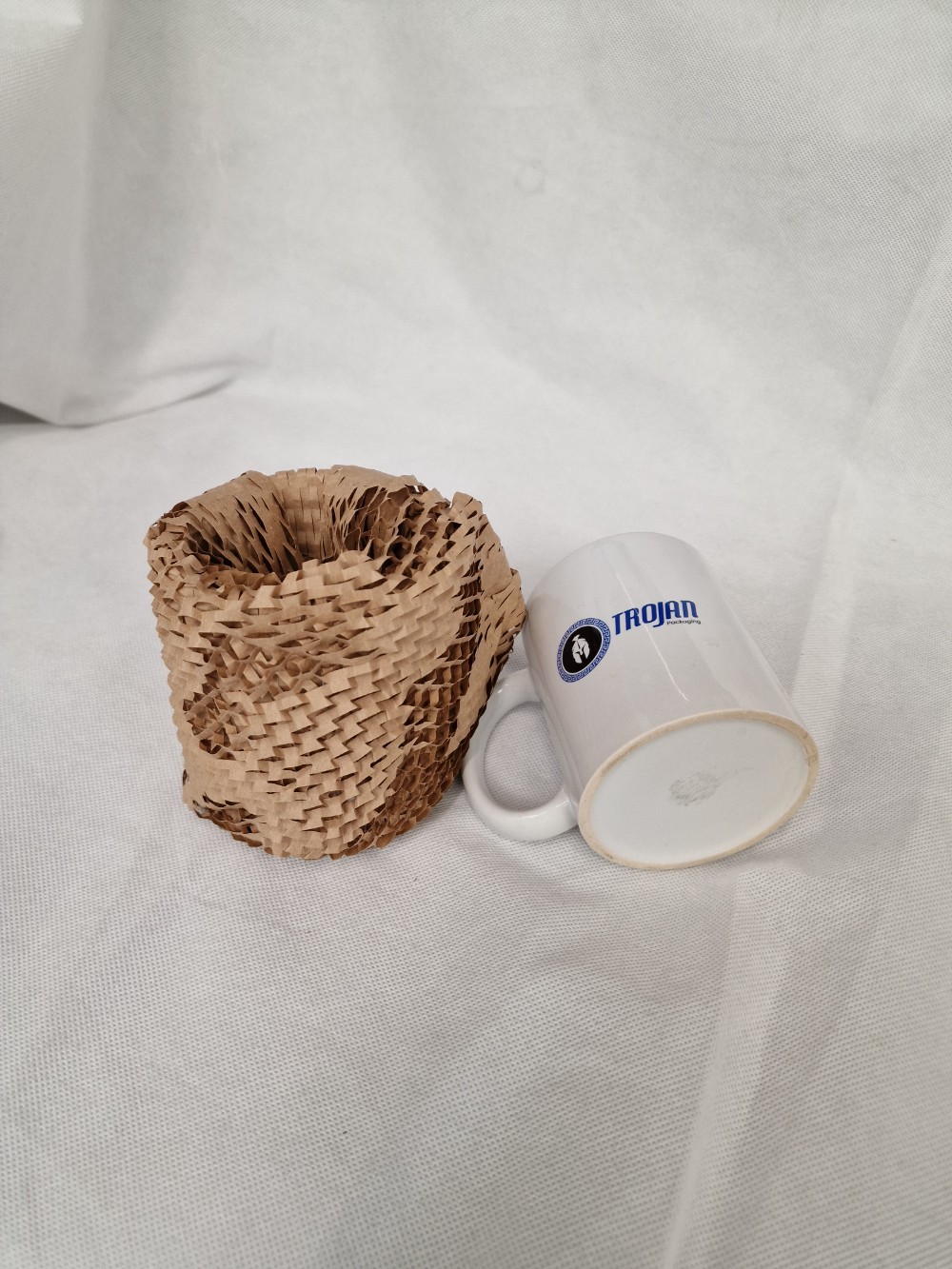Blog - A Look at How Consumers Feel About Sustainable Packaging

Evolving consumer preferences in the UK have increasingly highlighted the significance of sustainable packaging for e-commerce and online retail businesses.
Here we’ll delve into the attitudes of customers about packaging and sustainability and look at practical ways of adapting to this successfully.
This concept extends beyond environmental considerations to encompass economic and social factors, ensuring that sustainable packaging solutions are competitively priced against traditional single-use options.

Here are some common sustainable packaging examples:
- Biodegradable and Compostable Materials: Including options like biodegradable tapes, packing peanuts and compostable mailers made from plant-based materials such as cornstarch and sugar cane. These materials break down naturally, posing minimal environmental risks.
- Recycled Materials: Utilising recycled materials like corrugated cardboard in packaging solutions not only reduces the demand for new resources but also lowers the carbon footprint associated with the production and disposal of packaging materials.
- Innovative Materials: From mushroom packaging that uses agricultural waste bound by mycelium to seaweed packaging options, innovative materials offer lightweight, strong, and versatile alternatives to traditional packaging, all while being fully biodegradable.
Recent studies and analyses have painted a clear picture: sustainability is not just a trend but a fundamental shift in consumer purchasing behaviour. A significant portion of consumers now prioritise sustainability when selecting products, with a notable preference for environmentally friendly packaging solutions.
In addition to prioritising sustainable packaging, consumers are showing a willingness to pay more for products that adhere to sustainable packaging norms. This willingness varies across product categories and income groups, but it's particularly strong in product packaging categories like fresh fruits or meat.
Such trends underscore the importance of integrating sustainability into packaging strategies to cater to consumer expectations and willingness to invest in eco-friendly options.

Consumers are increasingly valuing sustainably sourced and manufactured products, leading to a faster growth rate for sustainable products compared to their traditional counterparts, despite a price premium. This shift in consumer preference is part of a broader trend where sustainability becomes a central focus for packaging efforts, aligning with regulatory actions aimed at reducing the use of single-use plastics and encouraging recycling and reuse.
The UK government, recognising the urgent need to tackle the issue of single-use plastics and unsustainable packaging, has committed significant resources towards innovation in sustainable packaging solutions. An initiative backed by both the government and private investment seeks to pioneer new forms of packaging made from renewable resources like plants, wood chippings, and food waste. This effort is part of the UK's broader Clean Growth Challenge, which aims to position the country as a leader in sustainable practices and technologies.
This holistic approach to packaging sustainability not only focuses on reducing environmental impact but also on driving economic benefits. By investing in the research and development of sustainable materials, such as bio-based plastics, and exploring new business models that prioritise circularity and waste reduction, the UK is setting a precedent for integrating sustainability into the fabric of its economic and environmental policies. The collaboration between businesses, such as major retailers and startups innovating in material science, and government initiatives is key to advancing these goals.
Another way the packaging industry is being shaped by sustainability concerns is through regulations and legislation. Below are some examples of current UK regulatory guidance for businesses on eco friendly packaging:
- Producer Responsibility Obligations (PRO) 2007: Focused on boosting the recycling rates of packaging materials, this legislation compels businesses to meet defined targets for waste recovery and recycling.
- Extended Producer Responsibility (EPR) Laws: These regulations mandate that companies meticulously gather and disclose comprehensive packaging information. This is particularly impactful for larger entities, which are required to register and meet new deadlines for reporting.
- Packaging (Essential Requirements) Regulations: This set of laws establishes the environmental criteria that all packaging must satisfy, with an emphasis on ensuring safety, minimising weight, and enhancing recyclability.
Meet Market Demand
Consumers are increasingly loyal to brands that demonstrate a genuine commitment to sustainability. According to insights from McKinsey, companies globally are making ambitious sustainability commitments, with a focus on achieving full recyclability and reducing the usage of plastics. These initiatives are not just about meeting regulatory requirements but also about aligning with the growing consumer demand for sustainable products and practices.
Improve Cost Efficiency
For small businesses, the transition to sustainable packaging can be a powerful move towards environmental responsibility while also impacting the bottom line positively. Sustainable packaging options, such as compostable materials and biodegradable options, not only help in reducing carbon footprint but also in attracting customers who prioritise eco-friendliness. In turn, this shift can result in cost savings through the use of eco-friendly materials which tend to be more efficient and lightweight, leading to reduced waste generation.
Sustainable packaging solutions can also offer more storage and space efficiency, freeing up valuable resources for further business development. It can also reduce shipping costs, making it an economically viable option for businesses aiming to reduce their overall operational expenses.

Enhance Customer Loyalty
One key aspect of sustainable packaging is its potential to reduce a business's carbon footprint. By switching to greener packaging options, businesses can significantly lower their CO2 emissions, responding to the environmental concerns of consumers and enhancing brand loyalty.
Strategically Increase Sales
Implementing earth-friendly packaging practices isn't merely a gesture towards sustainability but a strategic business decision that can lead to increased sales, especially as consumers, particularly from Generation Z, show a heightened inclination towards purchasing green products.
Strategies such as reducing packaging use, selecting sustainable materials, engaging and educating customers about disposal and recycling options, implementing reusable or returnable packaging solutions, and partnering with eco-conscious suppliers can collectively move the needle towards more sustainable operations.
The effectiveness of sustainable packaging also hinges on how well these practices resonate with consumers on an emotional and practical level. Research indicates that recyclable materials and minimalist packaging, for instance, can significantly influence consumer perceptions and purchase motivation. However, alignment with category expectations and clear communication about the sustainability benefits of the packaging itself are crucial to overcoming potential hesitations.

At Tidmas Townsend, we're committed to trading responsibly and offer an extensive range of eco friendly packaging solutions that allow you to dispatch your products with peace of mind, knowing you're contributing positively to the planet. Our selection is meticulously sourced from FSC-certified renewable sources, ensuring every piece of packaging, from boxes to tapes, is either biodegradable or recyclable by the end user.
Our eco-friendly packaging range includes:
- Corrugated Boxes: Perfect for securing and cushioning your products, our corrugated boxes combine strength with sustainability.
- Postal Boxes in White and Brown: Whether you prefer a classic or modern look, our postal boxes ensure your items reach their destination safely and stylishly.
- Eco Friendly Tapes: Seal your packages securely with our range of sustainable tapes, designed to hold firm while being kind to the environment.
- Mailing Bags, Document Wallets, and Protective Packaging: Lightweight yet durable, these options provide protection without excess waste.
- Loose Fill and Carrier Bags: Ideal for filling gaps in packaging or carrying purchases, these eco-conscious choices offer versatility and reliability.
- Degradable Waste Sacks: An essential for any business, these sacks help manage waste sustainably, breaking down without leaving harmful residues.
The shift towards sustainable packaging is not only a response to consumer demand but also an investment in the future of the brand and the planet. Our team can help you make this investment with cost-effective, reliable packaging materials and first-rate customer support.
Browse our full range of eco friendly packaging or get in touch for more support.













